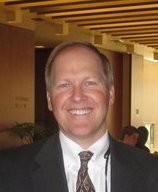Robert Smith on Pew Forum Report: Also Remember Shared Values, Common Goals

Professor Robert T. Smith, Managing Director of the International Center for Law and Religion Studies at the J. Reuben Clark Law School, Brigham Young University, was quoted extensively in an article by Michael DeGroote published in the 27 August 2011 edition of The Deseret News. The article appeared in response to a recent report of the Pew Research Center’s Forum on Religion & Public Life entitled “Rising Restrictions on Religion.” The report, prepared under the direction of Brian J. Grim, Pew senior researcher and director of cross-national data, traces developments during the period 2006-2009 and notes alarming trends suggesting increasing restrictions on religious freedoms for a great many people worldwide.
While praising the study for the way it helps to make comparisons and track trends, Professor Smith stressed the importances of also looking at things that can’t be measured. Different societies have different assumptions at play, he noted.
From the DeGroote article:
“What I think is probably impossible to measure, but I think is really significant, is the general attitudes of society that put pressure on people and affects them in their daily lives,” Smith said. “If, for example, somebody converts to a religion, and as a result their job or some other government benefit is put into jeopardy, that is significant social pressure.” But other pressures are more subtle, such as family pressure on someone who wants to convert to another religion. In most societies there will be pressure, but in some cultures defying parents would make someone an outcast from society. “That is not exactly a legal issue,” Smith said. “And it is even questionable what the responsibility of government would be for those kinds of societal norms.”
The center at BYU works in a different sphere to improve religious freedom. The approach isn’t government-to-government, but more person to person.
“Unless you are sensitive to these things, you can make a lot of noise … criticizing another country in their failure to protect religious freedom, but you are not going to be in a position to work with the persons who have enormous influence over religious policy in the country. They will just view you as a critic who has no understanding. But if you do try to understand the situation in a country … there’s a lot of shared values and a lot of common goals that we have with other countries — and where they can move forward, they often will.”
One of those shared values, Smith said, is valuing religious freedom.
“Almost all countries at least give lip service to religious freedom,” Smith said. “This provides some leverage to work with people within the context of what is politically feasible to improve religious freedom conditions within a country.”